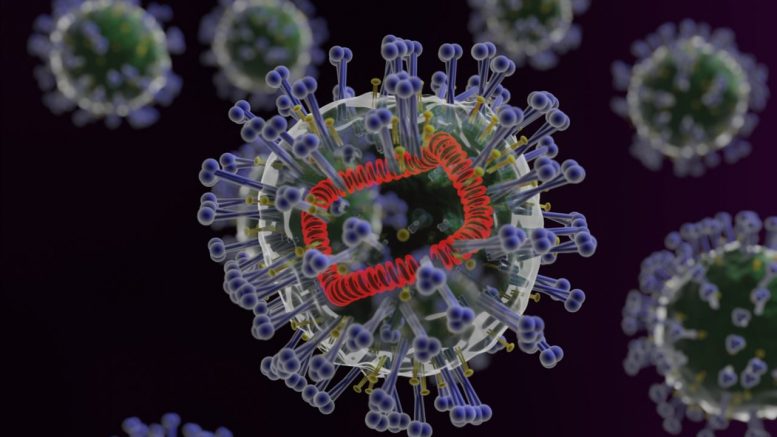Chief-Exec News Bites
Pentagon eyes Ukrainian interceptor drones to counter Iran
The Pentagon and at least one Gulf government are in talks to buy Ukrainian-made interceptors to fend off attacks by Iranian drones, according to industry figures in Ukraine. Gulf states had been using expensive Patriot missiles to defend themselves from waves of Iranian Shahed drones in the days since the US and Israel launched their war. But their stocks are declining, and they are looking to Kyiv’s experience for cheaper defence against Russian drone barrages. Ukraine has pioneered using mass-produced interceptors costing a few thousand dollars to destroy Russian versions of the Shahed, launched against Ukrainian cities in swarms. Shaheds cost a mere $30,000, while interceptor missiles like the PAC-3s used in the Patriot system cost millions. One Ukrainian official described the discussions with the Pentagon as a “sensitive” topic. “However, it is obvious that there is a surge in interest in the Ukrainian drone interceptors, which can intercept the Shahed for a very low cost.” A local industry figure said any sales of Ukrainian systems, even those made outside the country, would have to be in co-ordination with Kyiv. Financial Times, March 5
US Senate vote fails to rein in Trump war powers on Iran
A bipartisan resolution aimed at limiting President Donald Trump's ability to wage war in Iran has failed in the US Senate, as the strikes continue. The war powers measure was rejected in a 53-47 vote largely along party lines. It would have halted US military action in Iran without congressional approval. Democrats argue that Trump has sidelined Congress and offered shifting reasons for the war. Most Republicans blocked the resolution, but some said they could change course if the war expands in the coming weeks. The US and Israel began striking Iran on Saturday. The Islamic republic has responded by launching attacks on Israel and US-allied states in the Gulf. With no clear off-ramp in sight, Defence Secretary Pete Hegseth said the war could last eight weeks - almost double the duration mentioned by Trump at the weekend. BBC news, March 4
US submarine sinks Iranian warship as conflict spreads beyond Middle East
A torpedo fired by a US submarine sank an Iranian warship off the south coast of Sri Lanka as the Trump administration followed through on its threats to destroy Tehran’s military and political leadership. At least 87 Iranian sailors were killed in the attack on the Iris Dena on Wednesday. The frigate was sailing in international waters as it returned from a naval exercise organised by India in the Bay of Bengal. The torpedo strike prompted questions from former US officials about whether Washington’s aim of eliminating all of Iran’s military breached international law. The incident came as the US-Israeli air assault on Iran continued for a fifth day, with Washington officials warning that strikes would soon hit targets “deeper” in Iran. US forces also targeted pro-Iranian militias in Iraq, while the Iranian Revolutionary Guard Corps announced that it would continue missile and drone strikes on targets throughout the Middle East. The Guardian, March 4
Video: Trump threatens Spain with trade embargo for criticism of Iran campaign
Spanish Prime Minister Pedro Sanchez has condemned what he described as the US and Israel's unilateral military action in Iran, adding that the move contributes to “a more hostile and uncertain international order”. Now, in contrast to other EU nations, Spain is refusing use of jointly operated military bases on its territory to attack Iran. In response, US President Donald Trump has brandished economic punishment. France 24, March 5
Mental decline ‘not inevitable’ with age
The long, slow slide into cognitive decline and frailty as we age is far from inevitable and almost half of people actually improve mentally or physically as they grow old, a study has found. The key to staying fit and mentally agile may be a positive outlook, scientists found, suggesting improvement in later life was common. The biggest boosts were seen among those aged over 65 who had a cheerful view of growing old and refused to accept the inevitability of decline. The researchers followed more than 11,000 people aged over 65 for periods of up to 12 years. Changes in their brain function were tracked through 13-stage cognitive tests and their physical strength or frailty was assessed by monitoring average walking speeds. Over the period, 45.2 per cent of the 11,000 people studied improved in one or both of the cognitive or physical measures, including 31.9 per cent who showed cognitive improvements and 28 per cent physical improvements. The Times, March 5
'A war of choice': US Congress opens first Iran war vote amid intensifying debate
As the conflict with Iran widens across the Middle East, the US Senate is preparing for a pivotal vote on President Donald Trump’s decision to launch military action - a rare congressional showdown over a war unfolding without a clear American exit strategy. The legislation, known as a war powers resolution, gives lawmakers an opportunity to demand congressional approval before any further attacks are carried out. The Senate resolution and a similar bill being voted on in the House later this week face unlikely paths through the Republican-controlled Congress and would almost certainly be vetoed by Trump even if they were to pass. Nonetheless, the votes marked a weighty moment for lawmakers. Their decisions on the five-day-old war - which Trump entered without congressional approval - could determine the fates of US military members, countless other lives and the future of the region. France 24, March 4
‘No to war’: Sánchez doubles down after Trump threat to cut off trade with Spain
The Spanish prime minister, Pedro Sánchez, has responded to Donald Trump’s extraordinary threat to cut off all trade with Spain over his government’s refusal to facilitate the US’s ongoing attacks against Iran, comparing the growing conflict in the Middle East to playing “Russian roulette with the destiny of millions”. Sánchez, who has been one of the most vociferous European critics of Israel’s conduct in Gaza, said his government’s position on the widening instability could be summed up in three words: “No to war”. In a section of the speech that appeared to directly address Trump’s threats to end all trade with Spain, the prime minister said his country would “not be complicit in something that is bad for the world - and that is also contrary to our values and interests - simply out of fear of reprisals from someone”. The Guardian, March 4
Israel threatens ‘elimination’ of next Iranian leader
Israel’s defence minister vowed that “any leader” chosen by the Iranian regime would be a “clear target for elimination” amid reports that officials were close to naming a successor to Ayatollah Ali Khamenei. “Any leader appointed by the Iranian terrorist regime to continue leading the plan to destroy Israel, to threaten the United States and the free world and the countries of the region and to suppress the Iranian people will be an unequivocal target for elimination,” Israel Katz said in a statement on Wednesday, adding: “No matter what his name is or where he hides.” Financial Times, March 4
'All red lines have been crossed': Gulf states weigh response to Iranian strikes
Gulf states have found themselves on the front line of the Middle East's newest war, and they are angry. Iran has retaliated to US-Israeli air strikes by firing hundreds of missiles and drones at its Arab neighbours - targeting American military bases on their soil, but also civilian and energy infrastructure. In doing so it is targeting the Gulf's image as a safe, prosperous hub for travel, tourism and finance, and disrupting the oil and gas industry at its core. This is a war that the Arab governments didn't want and tried to prevent. The question is whether they'll be drawn into it by what they've called the "treacherous" Iranian attacks. "All the red lines have already been crossed," said Qatar's foreign ministry spokesman Majed al Ansari at a press briefing on Tuesday. "The attacks on our sovereignty are constant," he told journalists. BBC news, March 4
Mahmood bans visas for Afghans to halt asylum system exploitation
Britain will impose visa bans on four countries after ministers concluded that student and work visas were being systematically exploited to gain entry to the asylum system. Shabana Mahmood, the home secretary, will announce on Thursday that she has enacted an “emergency brake” to halt study visas being issued to applicants from Afghanistan, Cameroon, Myanmar and Sudan, and that she will suspend work visas for Afghans. Asylum claims from students from those countries rose by 470 per cent between 2021 and last year, making them among the most likely nationalities to seek protection after arriving lawfully in Britain. Home Office officials believe the routes have been used as a de facto backdoor into Britain’s asylum system. Since 2021, almost 135,000 people have entered the country legally on visas before subsequently lodging asylum claims, a pattern ministers say has placed intolerable pressure on the system. The Times, March 3
Kitney’s Column
April 23, 2024
Britain is hurting. Who will fix Brexit?
January 28, 2024
Political manoeuvres
October 5, 2023
Battling for Australia’s hearts and minds
June 19, 2023
Brexit: when rhetoric finally faced facts
Richie’s Column
October 16, 2023
A sea change in the UK is on the political horizon
April 4, 2023
Only a mug makes predictions in Scottish politics
January 16, 2023
Rishi Sunak’s Tory nightmare
October 21, 2022
It’s all Brexit’s fault!
May 30, 2022
Why is no-one talking about the high cost of Brexit?
Encipia: The Mechanics of Business
June 17, 2020
Covid conundrum: interact, produce, consume, or infect
There are early signs to suggest that a coronavirus and a steam engine have enough in common to provide a useful perspective for our economic well-being, writes Dr John Egan in part…


































